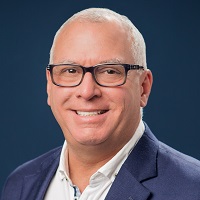The Price of Good Advice: 3 Ways a Financial Adviser Can Save You Money
It's always a good idea to know how much you're paying for financial help, but what might be just important (or more so) is how much you could be saving by getting good advice.


Profit and prosper with the best of Kiplinger's advice on investing, taxes, retirement, personal finance and much more. Delivered daily. Enter your email in the box and click Sign Me Up.
You are now subscribed
Your newsletter sign-up was successful
Want to add more newsletters?

Delivered daily
Kiplinger Today
Profit and prosper with the best of Kiplinger's advice on investing, taxes, retirement, personal finance and much more delivered daily. Smart money moves start here.

Sent five days a week
Kiplinger A Step Ahead
Get practical help to make better financial decisions in your everyday life, from spending to savings on top deals.

Delivered daily
Kiplinger Closing Bell
Get today's biggest financial and investing headlines delivered to your inbox every day the U.S. stock market is open.

Sent twice a week
Kiplinger Adviser Intel
Financial pros across the country share best practices and fresh tactics to preserve and grow your wealth.

Delivered weekly
Kiplinger Tax Tips
Trim your federal and state tax bills with practical tax-planning and tax-cutting strategies.

Sent twice a week
Kiplinger Retirement Tips
Your twice-a-week guide to planning and enjoying a financially secure and richly rewarding retirement

Sent bimonthly.
Kiplinger Adviser Angle
Insights for advisers, wealth managers and other financial professionals.

Sent twice a week
Kiplinger Investing Weekly
Your twice-a-week roundup of promising stocks, funds, companies and industries you should consider, ones you should avoid, and why.

Sent weekly for six weeks
Kiplinger Invest for Retirement
Your step-by-step six-part series on how to invest for retirement, from devising a successful strategy to exactly which investments to choose.
When someone asks me how much I charge for the work I do, I’m never quite sure how to respond.
I can explain that it depends on the investment and insurance products I offer, or the advisory services I’m providing, and we can discuss how it all breaks down in dollars or percentages.
But I’ve found that what most people really want to know is if I’m less expensive than their guy — and that’s a more complicated answer. Sometimes their guy is with a firm that’s strictly doing investment management. Or it’s a robot — what some call a robo-allocator — again, doing investment planning only.
From just $107.88 $24.99 for Kiplinger Personal Finance
Become a smarter, better informed investor. Subscribe from just $107.88 $24.99, plus get up to 4 Special Issues

Sign up for Kiplinger’s Free Newsletters
Profit and prosper with the best of expert advice on investing, taxes, retirement, personal finance and more - straight to your e-mail.
Profit and prosper with the best of expert advice - straight to your e-mail.
The person who’s asking — maybe it’s a friend or perhaps just an acquaintance — might even be managing his portfolio by himself. You can’t get much less expensive than that.
But it’s apples to oranges.
So we end up in a conversation about fee comparison and online trading and intense pricing competition, when what we should be talking about is what it’s going to cost him, and his family, if he doesn’t have the guidance of an adviser who strictly focuses on retirement and financial planning.
In the same amount of time it takes to explain how fees work, I could share three ways an experienced, knowledgeable adviser earns his money — especially when a client is closing in on retirement.
1. Tax planning.
Unless you’re working with a financial professional who offers comprehensive planning, you aren’t going to get a forward-looking tax strategy that deals with the money within or outside of your retirement accounts. Both have their consequences. The money in your IRAs will be a factor when you retire, because it can affect your tax bracket in a way you don’t expect. Your taxable accounts already may be causing problems you don’t even know about, if they’re actively traded. Either way, an adviser can help keep taxes down on money you aren’t using as income.
2. Health care, long-term care and estate planning.
Maybe you’re doing your own planning, or using a very low-cost mutual fund company. If so, you likely aren’t going to get any advice regarding the future costs of health care or long-term care, or help with providing a legacy for your family when you pass away. Many people overlook these issues until it’s too late — and these “unexpected” costs can devastate a family.
3. Income planning.
You may be working with a financial professional who’s doing a good job accumulating money for your retirement — but if you don’t have a solid distribution plan in place, you still could come up short or lose a large chunk of your money to inflation, taxes or too much risk. I often meet people who have no systematic strategy for withdrawing money based on their assets. They have no idea when to file for Social Security. And they’re stressed out because they don’t have any other cash flow coming in.
There’s no question that in this business, or any business, you must be competitive. But consumers should be aware that, particularly going into retirement, they benefit from a higher level of help.
A retirement plan is a complex puzzle that needs to be put together properly. Just like any puzzle, if you’re missing even one piece, it’s not complete. And that gap could cause the whole thing to fall apart.
Investment advisory services offered through Global Financial Private Capital, LLC. Bryan Slovon does not provide specific legal or tax advice. Please consult with your tax advisor or legal professional for guidance with your individual situation.>/i>
Kim Franke-Folstad contributed to this article.
Profit and prosper with the best of Kiplinger's advice on investing, taxes, retirement, personal finance and much more. Delivered daily. Enter your email in the box and click Sign Me Up.

Bryan S. Slovon is founder and CEO of Stuart Financial Group, a boutique financial services firm exclusively serving retirees and soon-to-be retirees in the D.C. metro area. He is an Investment Adviser Representative and insurance professional focusing on retirement planning and wealth preservation to a select group of clients. (Advisory services offered through J.W. Cole Advisors, Inc. (JWCA). Stuart Financial Group and JWCA are unaffiliated entities.)
-
 Dow Adds 1,206 Points to Top 50,000: Stock Market Today
Dow Adds 1,206 Points to Top 50,000: Stock Market TodayThe S&P 500 and Nasdaq also had strong finishes to a volatile week, with beaten-down tech stocks outperforming.
-
 Ask the Tax Editor: Federal Income Tax Deductions
Ask the Tax Editor: Federal Income Tax DeductionsAsk the Editor In this week's Ask the Editor Q&A, Joy Taylor answers questions on federal income tax deductions
-
 States With No-Fault Car Insurance Laws (and How No-Fault Car Insurance Works)
States With No-Fault Car Insurance Laws (and How No-Fault Car Insurance Works)A breakdown of the confusing rules around no-fault car insurance in every state where it exists.
-
 For the 2% Club, the Guardrails Approach and the 4% Rule Do Not Work: Here's What Works Instead
For the 2% Club, the Guardrails Approach and the 4% Rule Do Not Work: Here's What Works InsteadFor retirees with a pension, traditional withdrawal rules could be too restrictive. You need a tailored income plan that is much more flexible and realistic.
-
 Retiring Next Year? Now Is the Time to Start Designing What Your Retirement Will Look Like
Retiring Next Year? Now Is the Time to Start Designing What Your Retirement Will Look LikeThis is when you should be shifting your focus from growing your portfolio to designing an income and tax strategy that aligns your resources with your purpose.
-
 I'm a Financial Planner: This Layered Approach for Your Retirement Money Can Help Lower Your Stress
I'm a Financial Planner: This Layered Approach for Your Retirement Money Can Help Lower Your StressTo be confident about retirement, consider building a safety net by dividing assets into distinct layers and establishing a regular review process. Here's how.
-
 The 4 Estate Planning Documents Every High-Net-Worth Family Needs (Not Just a Will)
The 4 Estate Planning Documents Every High-Net-Worth Family Needs (Not Just a Will)The key to successful estate planning for HNW families isn't just drafting these four documents, but ensuring they're current and immediately accessible.
-
 Love and Legacy: What Couples Rarely Talk About (But Should)
Love and Legacy: What Couples Rarely Talk About (But Should)Couples who talk openly about finances, including estate planning, are more likely to head into retirement joyfully. How can you get the conversation going?
-
 How to Get the Fair Value for Your Shares When You Are in the Minority Vote on a Sale of Substantially All Corporate Assets
How to Get the Fair Value for Your Shares When You Are in the Minority Vote on a Sale of Substantially All Corporate AssetsWhen a sale of substantially all corporate assets is approved by majority vote, shareholders on the losing side of the vote should understand their rights.
-
 How to Add a Pet Trust to Your Estate Plan: Don't Leave Your Best Friend to Chance
How to Add a Pet Trust to Your Estate Plan: Don't Leave Your Best Friend to ChanceAdding a pet trust to your estate plan can ensure your pets are properly looked after when you're no longer able to care for them. This is how to go about it.
-
 Want to Avoid Leaving Chaos in Your Wake? Don't Leave Behind an Outdated Estate Plan
Want to Avoid Leaving Chaos in Your Wake? Don't Leave Behind an Outdated Estate PlanAn outdated or incomplete estate plan could cause confusion for those handling your affairs at a difficult time. This guide highlights what to update and when.